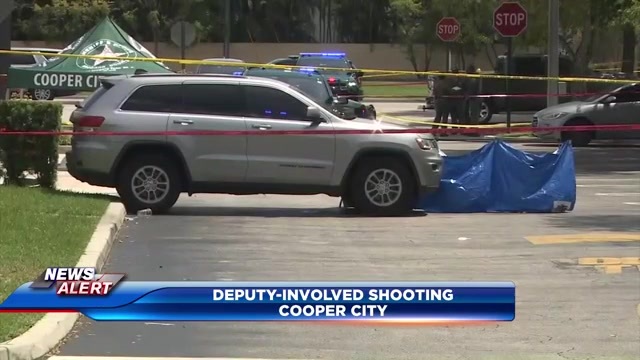Police Shooting Raises Questions About Mental Health Crisis Response
A police shooting in Cooper City involving a man in mental health crisis raises questions about emergency response protocols and crisis intervention strategies in law enforcement.

Police and emergency responders at the scene of an officer-involved shooting outside a Cooper City McDonald's
Fatal Police Encounter in Cooper City Highlights Crisis Response Concerns
A Broward Sheriff's Office deputy fatally shot a man experiencing a mental health crisis in Cooper City, Florida, raising questions about emergency response protocols in situations involving self-harm. The incident, which occurred Saturday afternoon outside a McDonald's restaurant near Griffin Road, began as a call for help but ended in tragedy.
Timeline of Events
Similar to the complexities faced in recent health-related crisis responses, the situation unfolded rapidly. Deputies and Broward Sheriff Fire Rescue units responded to reports of a man who had allegedly injured himself in the parking lot.
According to BSO spokesperson Claudinne Caro, when a deputy approached to offer assistance, the situation escalated. The man reportedly attacked the deputy, leading to the use of lethal force. The incident bears similarities to other crisis intervention challenges, as seen in recent emergency response situations.
Medical Response and Aftermath
Emergency services transported both the responding deputy and the deceased man's mother to a local hospital for treatment of non-gunshot related injuries. The scene, reminiscent of high-pressure situations requiring careful management, was secured for investigation.
Investigation and Oversight
The Florida Department of Law Enforcement has taken charge of investigating the shooting, ensuring independent oversight of the incident. This investigation will likely examine:
- Crisis intervention protocols
- De-escalation techniques employed
- Mental health response procedures
- Use of force guidelines
Community Impact and Policy Implications
This incident highlights the ongoing national conversation about law enforcement responses to mental health crises and the need for specialized crisis intervention training.
Rachel Whitman
Rachel L. Whitman is a political columnist and investigative journalist based in Washington, D.C. Her writing focuses on democratic resilience, civil rights, and the intersection of technology and public policy. With a background in law and public affairs, she brings sharp analysis and a deep commitment to progressive values.
